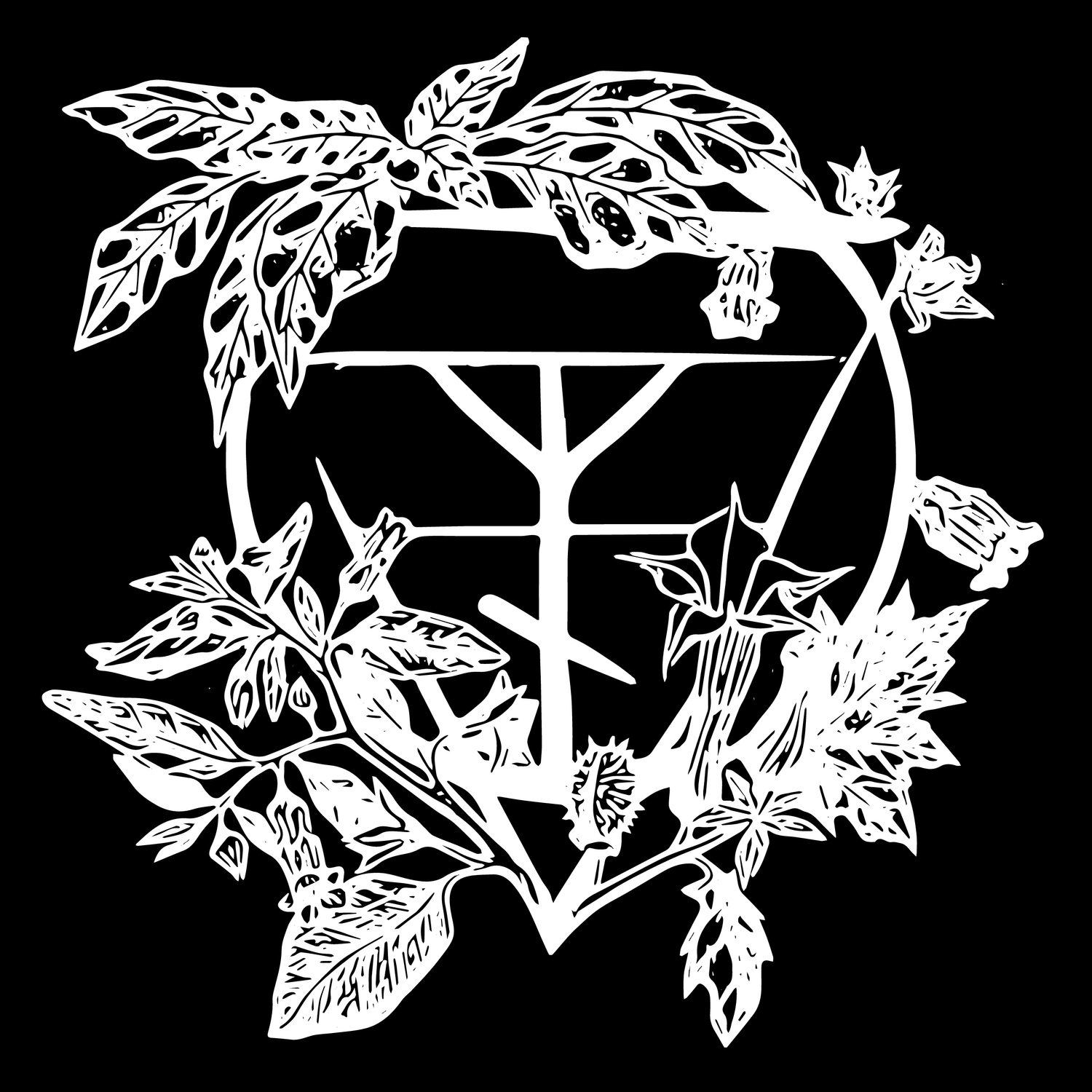Plant Profile: Thornapple
19th century botanical illustration
Thornapple
Datura stramonium
Common names: Datura, Jimsonweed, Jamestown Weed, Devil’s Apple, zombie cucumber, herb au sorcier (herb of sorcerers), and many many more. There are many varieties of Datura that have ethnobotanical uses all across the world. There are many common, folk names for this revered plant.
Medicinal Uses: Used both topically and internally to relieve pain in traditional medicine, helps with inflammation, nerve and muscle pain. It is believed to be an aphrodisiac in many places, and it is made into love drinks. Thornapple has been used in the treatment of asthma, in old-style inhalers and asthma cigarettes. The anti-cholinergic effects of the tropane alkaloid help to ease breathing. Thornapple has also been smoked to treat nervous and mental disorders. Scopolamine is used in motion sickness patches. (this information is for educational purposes only and does not seek to diagnose or prescribe. Poisoner’s Apothecary/Coby Michael is not responsible for the misuse of these herbs)
Alkaloids: All species of datura contain tropane alkaloids, which vary considerably from one plant to another. This variation is true even for plants of the same species, and different parts of an individual plant. The entire plant can contain anywhere from .25-.36%. The flowers and seeds have been shown to have up to .66%. Dried leaves and seeds can range .1-.6%. All parts of the plant contain the predominant alkaloids l-hyoscyamine and l-scopolamine. Other alkaloids are apoatropine, tropine, belladonnine and other trace alkaloids.
Thornapple’s effects can vary greatly, just like its alkaloid content. It can be considered a sedative-aphrodisiac with hypnotic effects. Larger doses can lead to aggression and terrifying hallucinations. One other important effect datura has is that is causes amnesia.
Datura plant spirit glyph, for connecting with the Spirit of Thornapple.
Datura innoxia
Magical Uses: The spirit of thornapple is a trickster and shapeshifter, manifesting in many different forms, sometimes animal, human and geen man. Thornapple is nocturnal and thus connected to the moon, nocturnal creatures and the magic of the Night and the psychic realm. By looking at its dangerous looking pods, we can see that thornapple can also be fiery and aggressive, making it a powerful ally for hexing and protection magic. Datura is also a wise shaman, guiding us on psychedelic journeys to bring back knowledge. Datura can help with healing involving ancestral trauma, past life issues, and recurring nightmares.
Stone: petrified wood
Rulers: Saturn because it is poisonous. Mercurial because it is a trickster and entheogen. Venusian for its aphrodisiac properties. Mars because of its thorns and aggressive nature. Psychedelic plants are also under the rulership of Neptune. Elemental fire.
Tarot Archetype: The Hanged Man
Spirits: Grandmother “Momoy” a tutelary grandmother spirit associated with Datura, Shiva, the Devil, Kali, Trickster Spirit, Coyote Spirit, Moth Spirit, the adversarial spirit of nature
Historical Info: Thornapple gained its name “Jimsonweed or Jamestown Weed” from the town in colonial Virginia where an entire group of English soldiers unwittingly ate thornapple leaves in a salad. They were out of their minds for days! The origins of datura are uncertain, some trace it to Central America while others place it in India. legend says that the Romany people, known for their magic and fortune telling ability, brought knowledge of thornapple to Europe.
Resources:
Ratsch, Christian. The Encyclopedia of Psychoactive Plants. Inner Traditions/Bear & Company. 2005. p. 212)
Jackson, Mark. Divine Stramonium: The Rise and Fall of Smoking for Asthma. Cambridge Journal of Medical History. 2010.



